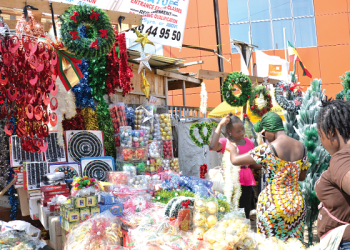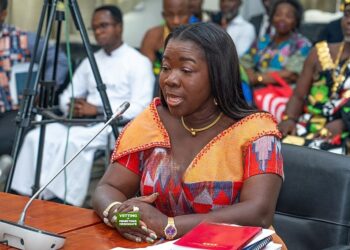Professor Wisdom Akpalu, Natural Resource Economist and Director of the Environment and Natural Resource Research Initiative (ENRRI – EfD Ghana) has said the collapse of Ghana’s fisheries sector posed high security risk to the nation.
He said despite evidence of Ghana’s fish stock collapsing, little was being done to save the livelihoods of over the 2.7 million Ghanaians who depended on the sector.“We have gotten to the point, where we have clearly over-fished the stocks. Fishermen are no longer getting as much fish as they use to get. Imagine what will happen to us if over 2.7 million abled men and women do not have anything to do. So this clearly poses a lot of security risk”, he warned.
He has thus, urged stakeholders to act swiftly to avert the imminent influence of drug cartels, weapons proliferation, maritime piracy among others from the already existing security challenges of the country.
Prof Akpalu,who is also the Dean of the School of Research and Graduate Studies of the Ghana Institute of Management and Public Administration (GIMPA) gave the warning when he addressed environmental journalists during a two-day training on environmental and natural resource journalism in Accra.
The training was organised by the Environment and Natural Resource Research Initiative of the Environment for Development (ENRRI – EfD Ghana) with funding from the Swedish International Development Initiative (Sida).
It was aimed at building the capacity of journalists to enable them to play their pivotal role of producing and disseminating simplified and accurate environmental information for the benefit of the public.“We have evidence of Ghana’s fish stocks collapsing,” Prof. Akpalu said, while pointing out that “for now, with the current practices, there is no future for the fisheries sector”.
According to him, there was the need for stakeholders especially government to take immediate action to protect the industry from collapse and also ensure its sustainability and profitability.
He said the country needed to take a cue from what happened in Somalia and other countries, where fishermen became pirates, kidnappers, gun runners, drug traffickers simply because their fishing was taken from them and they had no other job.
Prof Akpalu, who is also President of the African Association of Environmental and Resource Economists (AFAERE) emphasised that subsidizing outboard motors for fishermen did not make economic sense.
“Those subsidies from outboard motors for political expediency should be removed and those subsidies should rather be converted to support other livelihood activities along the coast”, he addedProf Akpalu suggested that the about 13,000 canoes on the country’s waters be reduced to 9,000 to guarantee sustainability and profitability of the sector.
The Environment and Natural Resource Research Initiative (ENRRI – EfD Ghana)is one of the 15 centres under the Environment for Development (EfD) Initiative.ENRRI is hosted by the Institute of Statistical, Social and Economic Research (ISSER) at the University of Ghana (UG), and the School of Research and Graduate Studies (SRGS) at GIMPA.
ENRRI contributes to the sustainable management of Ghana’s natural resources through capacity development, policy-relevant research and policy engagement.









Discussion about this post